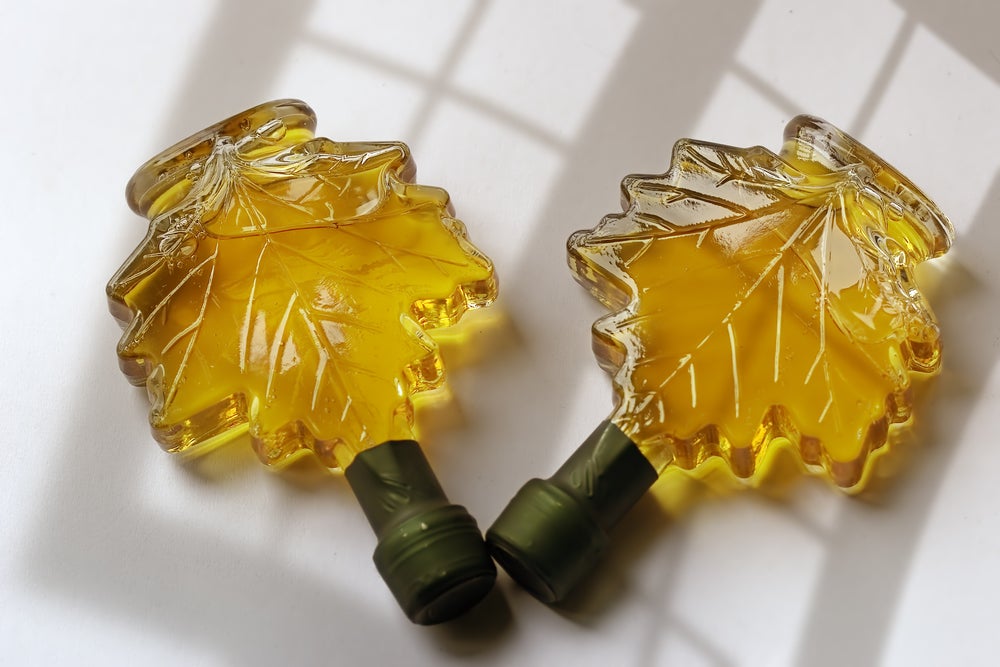Sweet Talk: The Skinny On Cane Sugar Alternatives

Photo: <a href="http://www.shutterstock.com">www.shutterstock.com</a>
Try any or all of these sweeteners and reap their rewards.
By no means do so-called “natural sweeteners” give athletes a license to spoil a sweet tooth rotten, but in many instances they are a significant step up nutritionally and flavor-wise from their heavily processed counterparts. The next time you’re looking to add a touch of sweetness to your oatmeal or mid-afternoon yogurt snack, consider using one of these standout options.
Coconut sugar
This up-and-coming granulated sweetener is made from the sap of coconut palm flowers. It has a caramel-like flavor and is believed to have a lower glycemic index than white sugar. It may not lead to dramatic spikes in blood sugar, which can help keep energy levels on an even keel.
Need to know: You can use coconut sugar as a measure-for-measure replacement for white sugar in most recipes.
Maple syrup
Besides its great flavor, tree goo actually has fewer calories than honey, and recent studies show that maple syrup contains an arsenal of unique antioxidants. Just make sure you splurge for the pure stuff instead of the corn syrup imposter.
Need to know: It takes a whopping 40 liters of maple sap to produce a mere liter of maple syrup, which is why you should expect to pay more for this sweetener.
Honey
More proof that honey is nature’s sweetest treat: A Journal of Strength and Conditioning Research study found that athletes who consumed honey during exercise experienced an upgrade in performance. This sweetener also possesses strong anti-bacterial properties.
Need to know: Darker varieties of honey, such as buckwheat, have been shown to be richer in antioxidants.
RELATED: Are Artificial Sweeteners Better Than Sugar?
Molasses
The bittersweet sweetener left over after sugar crystals have been extracted from sugar cane contains more disease-fighting antioxidants than most other sweeteners, according to the Journal of the American Dietetic Association. And unlike refined white sugar, molasses contains a range of minerals athletes need like calcium, magnesium, iron and potassium.
Need to know: Since molasses is a concentrated product, it’s best to select organic to limit exposure to chemicals used on conventional sugarcane plantations.
Date sugar
This sweetener is made simply from finely ground, dehydrated dates. Thus, this sugar contains all the fiber, vitamins and minerals (including energy-boosting iron) found in dates.
Need to know: Date sugar absorbs plenty of liquid, so if using it in recipes, add some additional liquid to compensate.
Lucuma powder
Made by drying and milling South American lucuma fruit, orange-yellow lucuma powder has a low glycemic index and contains a number of vital nutrients like beta-carotene. Its maple-like flavor works well in smoothies, yogurt and ice cream.
Need to know: Finding lucuma powder can be hit or miss. Some health food stores carry it, or try online at Navitasnaturals.com.
RELATED: How Healthy Are Natural Sweeteners?
Erythritol
Of all the calorie-free granulated sweeteners on the market, erythritol is deemed one of the least suspect. Erythritol occurs naturally in some fruits and is about 70 percent as sweet as regular sugar, yet is virtually calorie-free. It’s also less likely to cause gastric upset than other sugar alcohols like xylitol, since it’s primarily excreted from the body in the urine.
Need to know: Erythritol tends to be closer in flavor to regular sugar than some other calorie-free sweeteners like stevia, which can be slightly bitter.
What about agave?
Agave syrup has become a popular natural sweetener, primarily for its very sweet taste (about 40 percent sweeter than sugar) yet low glycemic index. But agave’s dirty little secret is that it is extremely high in fructose. Yes, that same sugar which gives high fructose corn syrup its bad rap.
Unlike other sugars, fructose is metabolized almost entirely in the liver. This makes it more likely to be converted to fat, which, if consumed in large amounts, may lead to insulin resistance and unwanted fat gain.
Get the latest in triathlon training, gear, nutrition and news sent straight to your inbox. Sign up for Triathlete’s newsletter.